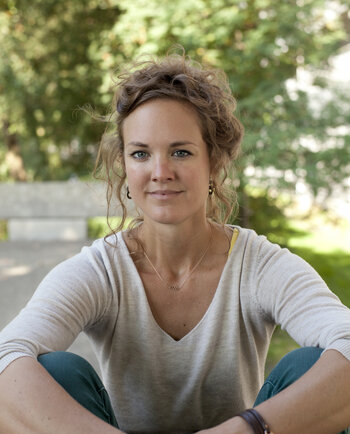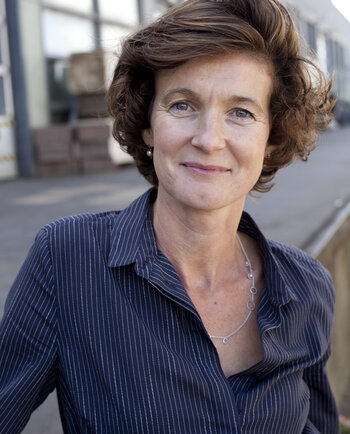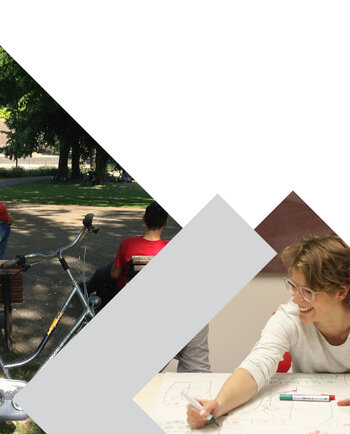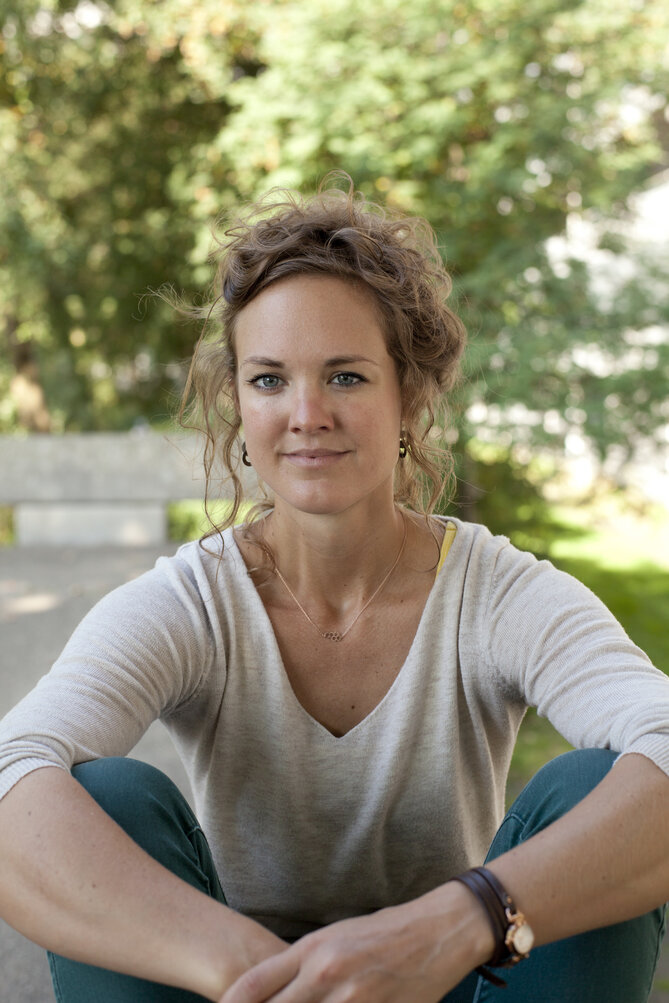
How do we make policymaking more inclusive?
Marlieke Kieboom Onderzoeksadviseur maatschappelijke innovatieAbout the boy in the park, the civil servant in the office and the researcher at university.
Marlieke Kieboom recently spoke in a panel at LabWorks in London on why we should make our knowledge production in policymaking and research more inclusive and democratic. This is the written version of her panel contribution to the session ‘mapping the ecosystems of labs’.
When asked about mapping the ecosystems of labs, I would like to talk specifically about policymaking ecosystems and research ecosystems, and how they are intimately related to each other, and yet, we do not acknowledge this enough in our lab practices++Lab PracticeKennisland recently published Lab Practice, a paper in which we share our experiences of doing a social lab with elderly people in Amsteldorp. You can learn more about methodologies and read stories from changemakers, elderly people and social lab facilitators.. What I see in the Netherlands is that the way knowledge for policymaking is currently produced is undemocratic and exclusive.
My statement therefore on this panel++LabWorksChris Sigaloff and Marlieke Kieboom were invited to speak at LabWorks in London, organised by Nesta in July 2015. Marlieke’s panel description: ‘Labs are one part of a wider innovation ecosystem. Who are the other actors – universities, consultancies, expert networks and communities of practice – and what kinds of partnerships do labs need to be truly effective? How important is the ecosystem to ensure that individual ideas scale and a culture of innovation becomes embedded enough to create wider impact?’ Read more about LabWorks is that if we don’t acknowledge and change the way we do research and the way we produce knowledge for policymaking, then we are not going to change much in society with our public sector labs. In my perspective it matters a great deal with whose knowledge you start. In policymaking, do we start with the knowledge of a civil servant, an academic researcher, or with the story of a boy in the park? In doing (academic) research, do we start with the knowledge found in academic papers of others, with the question of the academic, or do we start researching what the question in society might actually be?
To illustrate this point I would like to tell you a story from the field: a social innovation lab situated in Nijmegen++PodcastListen to Marlieke’s podcast about how Kennisland sets up and runs social innovation labs in the Netherlands. , a city in the east of the Netherlands. In Nijmegen, I am facilitating a multi-disciplinary team of 12 people, including young people, professionals of youth wellbeing, teacher-researchers, policymakers, an artist and civil servants. Together we do research and design new services over the following question: how to be young well in the city, and how to be young in better ways?
Of the boy, the civil servant and the researcher
So here’s a story of a boy in the park, of a civil servant in the office, and the researcher at university. These people all exist: they are all real people, they all live in the same ecosystem of the lab I run in Nijmegen. First of all I have to tell you that they do not know each other, they are disconnected. Second, they hold different positions in society: two of them are privileged, hold powerful positions in society, and are highly educated, while the other is a young adult of first generation refugees. This information is important toIt matters with whose question and knowledge we start. demonstrate why I think it is matters with whose question and knowledge we begin when doing research and making new policies and services.
If we start by answering the question of how to be young well in the city from the point of view of the civil servant, let’s say her name is Jessica, who has a beautiful and long email signature that says something like “strategic policy advisor for youth; regional care taker for safe homes; coordinator of product group youth”, then you will get an answer that somewhat goes like this:
“I’m kinda busy and I actually don’t know any youth myself. Why don’t you talk to some of my colleagues at the front end, in the field, or to a politician? I am more at the back end, you know, and in the distance. Or try our department of numbers and statistics, or a researcher at our local university.”
If we then call the researcher, let’s call him Jay, and ask the question “how to be young well in the city, and how to be young in better ways?”, then he’ll tell you how great his research is on this topic, how much he knows already, how much he has written about it, and how I, unfortunately, cannot access his research because it’s wrapped in complicated language, and locked up in academic journals I have to pay for.
If you go to the park, you can meet Nino (23). Nino is a boy who is at the crossroads of his life. Shall he continue school, try to solve the substantial debts he is in, and get his life sorted, or shall he quit school, start dealing drugs, pay off his debt and start supporting his mother who is on benefit? He has tried to get help before from ‘the system’ but he got stuck as his home address is not in the city where he currently lives with his mother who supports him with food and shelter while he goes to school. The Dutch government has recently decentralised many social services to municipalities, thus Nino can only receive support in the city in which he is officially registered. Now how to get Nino back on his two feet?
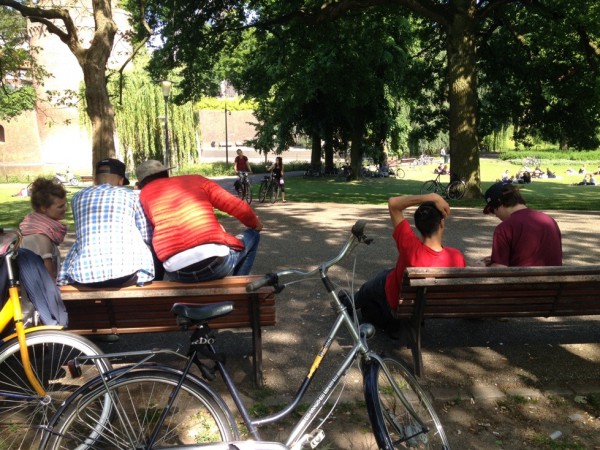
Since we have started our project we f“I am going to get my shit together by myself, I think. Because in the end it is the system that is making it difficult for me.”ollow Nino around, getting lost and found in the system. Last night I had a conversation with him on whatsapp. A local wellbeing organisation has denied giving him a temporary postal address in the city of Nijmegen, following the rules our latest government has put in place. This new law prevents people from obtaining a temporary postal address with a wellbeing organisation if they have found food and shelter within their informal network. This law also means Nino can be fined for receiving a student loan while living with his mother who receives benefit. How to get help from the municipality to keep him in school and resolve his debts? I asked him: “So, what are you going to do now?”. He responded with:
“I am going to get my shit together by myself, I think. Because in the end it is the system that is making it difficult for me. I think those people get paid to make it difficult for me. Because I never understand what they are doing.”
Pain points
What this story illustrates is a true pain point in the ecosystems of policymaking and the way we do research and use this research for policymaking. It is not so much a lack of knowledge, but the problem lies in the way we acquire knowledge, the way we generate knowledge, and the way we value the knowledge of some people and institutions over that of others. If policymakers even find Nino’s knowledge, is Nino’s knowledge just as valuable for policymaking as the findings in the researcher’s paper? Could we find ways to better connect and collaborate over everyone’s knowledge to make better policies and services for people?
Let us as a lab community make this pain point of disconnected knowledge production more explicit and visible in the future. Thus my question to this panel is:
“How can we design new research methodologies that are much better connected, much more democratic and inclusive in their knowledge production modes? How can we design policymaking processes that include these new modes of research?”.
In our lab in Nijmegen we are giving it a humble try. Through a self-developed action and research methodology, called Feed Forward, the multi-disciplinary team I mentioned before collect and publish stories of discouraged youth. In this, we actively try to connect the processes of doing research, policymaking and designing new services. It is through this act of proThe problem lies in the way we acquire knowledge, the way we generate knowledge, and the way we value the knowledge of some people and institutions over that of others.ducing and understanding each other’s knowledge, of feeling empathy for each other’s perspectives and experiences that we find our collective knowledge gaps and the thematic threads that emerge from each other’s stories. We then prototype new behaviours, new processes and new services to bring the experiences and needs of youth in Nijmegen together with the world of systems, organisations, rules, and policies that should be enabled to serve them.
Challenging our future knowledge ecosystem
I think in order to address this challenge of disconnected and lack of collaborative knowledge production at a larger scale, we, as a community of lab practitioners, academics, policymakers and civil servants need to:
- re-think academic practices (what is the role of academic schooled researchers in public sector innovation? What is the current value of their research for people?);
- discover new networks of knowledge production and seek to diversify them by including people we don’t see, people we don’t know;
- apply this question to ourselves as a lab community, in our own ecosystem of learning.
We need to tweak our own culture and modes of knowledge production, even better, to question it. If academic papers and traditional conferences with 35 key note speakers and 500 attendants have become obsolete as an effective way to share, use and spread knowledge and progress in society, then what are the alternatives?
